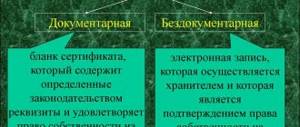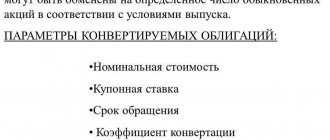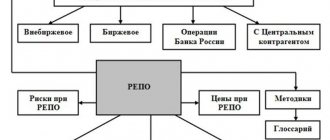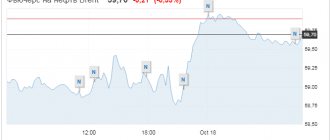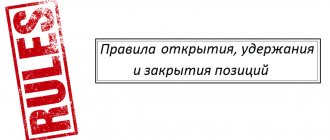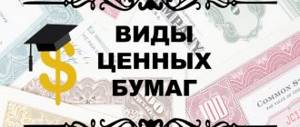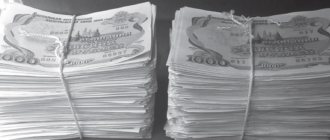Book-entry securities are one of the ways to fix and secure rights to securities using the capabilities of modern electronic devices.
Securities are a document confirming property rights that exist as a physical object.
Documentary form is the existence of rights in paper form. But uncertificated securities simply imply the presence of information about ownership with recording in the register (special purpose “depot” account, personal account) of all significant data.
Both options for the existence of securities have the right to life, in accordance with the norms of current legislation.
Characteristics and Traits
Circulating a security and carrying out various transactions with it does not imply physical transfer at all - it is enough to contact a legal entity that acts as the owner of the register and officially records rights.
It is this legal entity that is responsible for executing transactions involving uncertificated securities. At the same time, the legal entity is indicated in the decision on the issue of paper or other official document of the issuer.
The provisions regarding uncertificated securities are regulated by the Law “On the Securities Market”, the set of regulations and the Civil Code. The owner of uncertificated securities is identified by accessing the register and checking the entry in the system. This can also be done when depositing an account.
The registry system exists in electronic format, making it possible to find all the information about a valuable asset.
The database is maintained in electronic format and allows you to quickly find information about the owners of equity securities.
The uncertificated type of securities assumes the following characteristics:
- The right (all its types) to perform various manipulations with papers is confirmed at the request of the copyright holder.
- Distribution by emission.
- Shares of the same issue have the same expiration dates and volumes, which do not depend on the moment of acquisition.
- A paper (physical) form is not needed to verify all rights.
- All rights to ownership of the securities are included and indicated in the official document that serves as confirmation of the issue.
It is worth noting that only registered issue-grade securities have the right to be sold in book-entry form. If we are talking about bearer papers, they cannot in any way be sold in non-documentary form.
Due to the fact that uncertificated securities have no material sale, they cannot be presented to the issuer or transferred to the holder.
Bonds and shares, therefore, are necessarily issued in the form of tangible documents. Without a physical medium, only order and registered financial instruments can exist.
Types of uncertificated securities:
- Registered shares are indivisible parts of capital sold to a person/company, with the owner's name indicated on the shares and in the registers, with the transfer of ownership rights by endorsement. Sometimes even trading in assets is prohibited and is carried out only after receiving permission from the issuer.
- Registered bonds are debt obligations of the issuer to a person (his name is indicated in the document itself and is entered into the register).
- Investment shares are a security containing an indication of the existing right of ownership regarding part of the mutual fund's property; the amount is indicated on the certificate form and in the register; transfer is possible only by endorsement.
- Promissory notes are promissory notes with mandatory inclusion in the owner’s register and a ban on transfer to other persons (except for starting the procedure for assignment of rights).
- Issuer options.
- Mortgage Certificates.
Not all order and registered assets can be sold in electronic form - checks, bills of lading, registered deposits cannot be freely traded, so they are not sold in electronic format.
Mortgages are also registered documents, but they can only be created in paper form, although such an opportunity may soon be provided. Derivatives are also considered assets; they are allowed to be sold on an equal basis with others, but in such a situation the object of rights is the shares themselves. All over the world, derivative financial instruments are traded electronically – this is more expedient and faster.
Second-tier securities (derivatives such as warrants, depositary receipts) are used to transfer rights that arose from primary bonds and shares. Electronic trading is usually used for high transaction speed, security and simplicity.
The issue of uncertificated securities is available only to a commercial enterprise that has a license to do so. Once the rights have been registered, the person is issued a document to confirm ownership.
Money as objects of civil rights
Modern Russian legislation does not contain a legal definition of “money”.
Distinctive features of money:
Cash
Civil law classifies money as
Money is considered a consumable thing because when it is transferred from the debtor to the creditor (when it is exchanged for a certain product), it actually ceases to exist for the debtor. Thus, money is a consumable type of thing in economic and social terms for each specific owner.
On the other hand, money, like a non-consumable thing, is not completely destroyed when transferred from one entity to another, even with prolonged use. This property of money allows us to classify it as a non-consumable thing.
From this it is clear that we are talking about banknotes (bills) and coins, i.e. about cash. In the Russian Federation, in accordance with Part 1 of Art. 75 of the Constitution, cash is issued (issued) only by the Central Bank (Bank of Russia) in the form of paper banknotes (bank notes) and metal coins of the Bank of Russia. The monetary unit in the Russian Federation is the ruble.
At the same time, money can also act as a special commodity - an independent subject of certain transactions, for example, loans and credit (for the latter is essentially a trade in money). Cash cannot be demanded from its bona fide purchaser (clause 3 of Article 302 of the Civil Code), including if it is individualized.
Non-cash money
In developed property turnover, most payments are made non-cash, using funds in bank accounts and deposits. Non-cash money is also widely used in circulation both as a means of payment and as a special product. They are relatively easily converted into cash (possessing, as financiers say, a “high degree of liquidity”) and in many cases are readily accepted by counterparty creditors in payment of debt. Thus, they perform the usual functions of money. Therefore, in an economic sense, money means not only cash, but also funds in bank accounts and deposits.
However, by its legal (civil) nature, “non-cash money” is not a thing, but a claim (to denote it, civil law usually uses the term “cash”). They cannot be considered a legal (i.e. generally binding) means of payment. In the Russian Federation, in a number of cases, the possibility of converting them into cash is limited, and the use itself is permitted in compliance with the order of payments established by law, and not by the owner (for example, Article 855 of the Civil Code). In addition, there is a risk of insolvency of the banks that hold the corresponding amounts (and the value of “non-cash money” in these conditions cannot correspond to the value of the same amount of cash). As rights of claim, “non-cash money” can be included in the concept of property and even in the composition of such objects as property complexes (enterprises). However, their civil law regime as objects of obligatory, and not real rights, excludes the possibility of their identification with things.
What are the advantages of owning uncertificated shares?
The documentary type of securities is gradually becoming less popular and the non-documentary form is coming to the fore. An account is simply opened for a shareholder, where shares are credited, and a register is formed based on the accounts. Upon request, a shareholder may obtain an official document of the established form to confirm ownership rights.
Uncertificated securities imply the absence of a certificate confirming real rights, due to which the paper cannot be transferred/withdrawn, damaged/lost. And in the case when the papers need to be seized, we are talking about the personal account of the shareholder.
When a shareholder wishes to transfer his rights to securities to someone, he simply demonstrates proof of ownership of the share in the agreed register and gives the appropriate order. Next, the paper is transferred to the owner, and the rights are indicated on the created personal account in the depot. This type of transfer is called transfer.
The reliability of a public share distinguishes it from any other document that can also secure property rights: deeds of transfer/invoices, receipts for the transfer and receipt of amounts, promissory notes, etc. A sign of public reliability demonstrates that the owner of the share, when executing the security, relies solely on the details.
A person can challenge and prove ownership of a share, relying on the accuracy of the directly supporting document and strict adherence to the form and all details of this document. You won't be able to refer to anything else.
Classification
A security is the same product, but only with a special method of circulation. It represents a document expressing property and non-property rights. Often the Central Bank becomes the object of any transactions, including purchase and sale. Capable of generating permanent or one-time profit. The regulation on securities is specified in paragraph 2 of Art. 142 of Law No. 51-FZ of the Civil Code of the Russian Federation.
Kinds
| Basic | Derivatives |
| Stock | Futures |
| Bills of exchange | Options |
| Bonds | Warrants |
| Bank certificates | Bills of Lading |
| Investment share checks | Warehouse receipts |
| Bearer passbook | Depository receipts |
| Checks | Forward contracts |
The listed securities are divided into types and subtypes. Example: there are ordinary and preferred shares, with and without par value. In addition to differentiation, papers are classified into groups. Read more about the types of securities in this article.
Groups
| Kinds | Definition |
| According to the form of existence | documentary (paper) |
| undocumented (paperless) | |
| According to the transition form | bearer - transferred by delivery or assignment |
| order - transmitted by order of the owner |
The list of varieties is far from complete and depends on the features of the document. More about this in other articles.
Differences in the legal regime
The legal regime of undocumented papers differs from the documentary form, although in many respects they are similar.
Key points of legal relations:
- The right of ownership is secured in an electronic document by the person who is given the right to make changes to the registers of shareholders.
- This type of security represents an absolute right.
- In the management of securities, regulation of the proprietary type prevails in any case - the right to own an asset is absolute, formed on the model of property rights, but has certain differences.
Civil law explains the absolute ownership of uncertificated securities as the legally established possibility of a shareholder to be recorded as authorized on paper. He has the opportunity to dispose of the asset according to his interests and desires.
Procedure for disposal and restrictions on disposal of uncertificated securities
According to the provisions of the Civil Code, the order is carried out only by contacting the person who is responsible for recording rights. This person and the person who issued the book-entry paper are jointly and severally liable if losses were incurred as a result of their activities. Losses may be a consequence of violation of the procedure for recording rights, carrying out transactions, or other violations.
Restrictions can be introduced by order of the copyright holder or the person who records the rights to undocumented papers.
Resulting consequences
Documentary securities physically confirm the right to own them, which is stated in the register. The shareholder may request the issuance of an official document indicating the basic details.
Russian joint stock companies practice issuing free securities due to the speed and low cost of the process. The issue takes place without delays, which has a positive effect on the price of shares and the overall profit of the joint-stock company.
When purchasing such securities, you need to take into account that they can only be registered, because the owner’s details are indicated in the register when issued. Therefore, this issuance format is a priority for shares, while bills must have a form.
Book-entry securities are so-called paperless shares, which, nevertheless, give all rights and are recognized by law.
What are financial instruments?
Financial instruments are objects of law with which transactions are carried out. For them in the domestic Civil Code there is an explanatory definition:
- Documentary securities have a tangible form, which includes the specified details, par value, name of the issuer and other information.
- Book-entry securities (we will consider the types below) are distinguished by the absence of a material form. They are characterized by property rights, which are enshrined in the established register.
